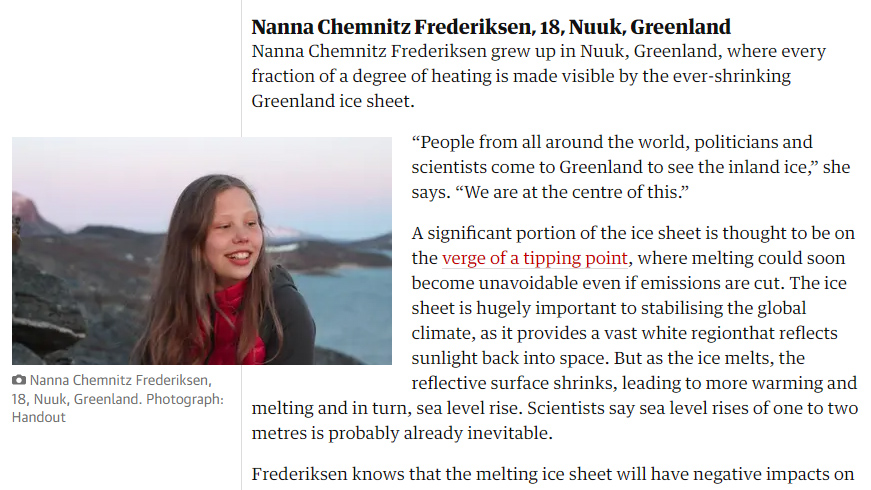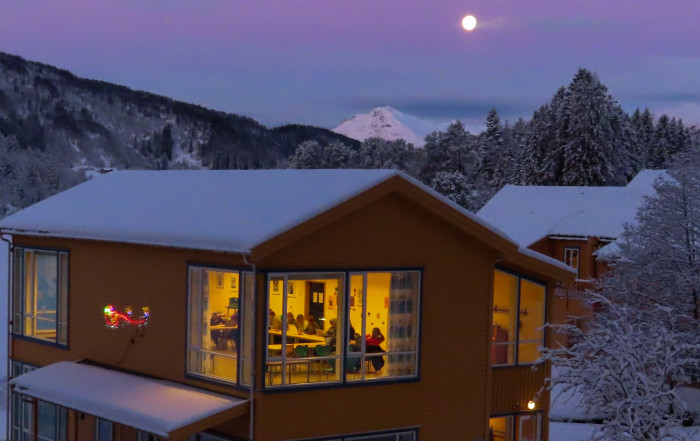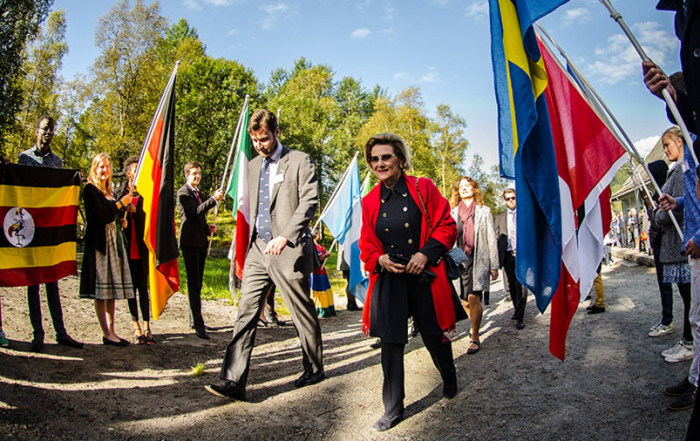“People from all around the world, politicians and scientists come to Greenland to see the inland ice,” she says. “We are at the centre of this.”
A significant portion of the ice sheet is thought to be on the verge of a tipping point, where melting could soon become unavoidable even if emissions are cut. The ice sheet is hugely important to stabilizing the global climate, as it provides a vast white region that reflects sunlight back into space. But as the ice melts, the reflective surface shrinks, leading to more warming and melting and in turn, sea level rise. Scientists say sea level rises of one to two metres is probably already inevitable.
Frederiksen knows that the melting ice sheet will have negative impacts on communities across Greenland, especially in northern settlements such as Qaanaaq where permafrost melting is destabilizing homes and roads and impacting how fishers and hunters operate.
But her real concern lies on the impact it will have globally. “I am not so scared of what the effects of the melting of ice in Greenland will be,” Frederiksen says, “It scares me what effect it can have for the rest of the world.”
Latest News
Changemakers
During the past year, four RCN students (Diva, Laura, Meg, and Ylva) have used the Changemaker Project as a platform to design and print educational posters as visual learning aids for a primary [...]
The New Normal
Nearly all students are now back on campus and we are in the full swing of the second term in an extraordinary school year. About 50 of our students have stayed here locally [...]
Queen Sonja continues as our Patron till 2025
It is with joy we have received the message from the Royal Court that Her Majesty Queen Sonja will continue as the Royal Patron for our College for a new period from 1.1.2021 [...]




